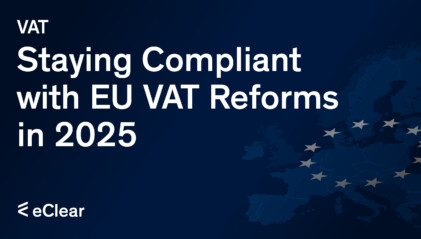With the revision proposal on the Directive on Administrative Cooperation (so-called DAC-8), the European Union has presented a step towards improved taxation of cryptocurrencies that complements the MiCA Regulation and anti-money laundering provisions.
In future, exchanges and other providers of cryptocurrency services will be obliged to report all transactions of their clients to the authorities of the EU member states.
While this requirement initially sounds like an onerous obligation, it could positively impact the cryptocurrency market in the long term. Because the improved control and regulation could strengthen investor confidence. Until now, cryptocurrencies have been considered untrustworthy due to their anonymity and the lack of state control. However, the new EU regulation could help cryptocurrencies finally make the breakthrough and be accepted as a severe form of investment.
The aim is to increase tax transparency in crypto assets and to combat tax evasion and avoidance, which could generate additional tax revenue of around €2.4 billion for EU member states.
Mainstream acceptance of crypto through DAC-8?
In the current financial landscape, cryptocurrencies make a great promise: they can enable more financial freedom for everyone and help build wealth. But crypto needs to be regulated for this to become a reality. The EU DAC-8 Directive is an essential step in this direction.
The DAC-8 Directive is the eighth amendment to the “Directive on Administrative Cooperation”. It aims to regulate better the tax aspects of crypto assets within the EU. Directives are framework laws that set out what outcomes must be achieved. However, member states can decide how to transpose the directives into national law within specific guidelines.
For retail investors, cryptocurrencies offer an opportunity often reserved for the wealthy and institutions in the traditional financial world. Cryptocurrencies allow a certain financial freedom, but they also come with much responsibility.
Regulation of cryptocurrencies and taxation of transactions are necessary steps to increase investor confidence and improve the reputation of the crypto market. The DAC-8 could help pave the way for broader acceptance of cryptocurrencies.
Crypto taxation in the EU

The tax liability for cryptocurrencies in the EU is a complex issue that unsettles many crypto asset owners. For any profit made on crypto-assets, the owner must pay tax. The type of tax depends on which country the crypto asset owner is a tax resident in and can be either a variable income tax or a fixed capital gains tax. Some countries also have a holding period, after which the gains are tax-free.
In the future, all crypto service providers, regardless of whether they are affected by MiCA regulation, will be required to disclose transactions to their European Union resident clientele. Furthermore, the reporting requirements also extend to e-money and e-money tokens in accordance with MiCA. The reporting obligation applies to both domestic and cross-border transactions.
The relevant information must be submitted to the competent authorities by 31 January of the year following the relevant calendar year of the transaction to be reported. Reporting is only required in one EU Member State: for crypto service providers subject to MiCA, this is the Member State in which they are authorised.
Service providers not covered by MiCA but must disclose information about EU-based clients are required to register once.
Within the European Union, the European Court of Justice (ECJ) has ruled that transactions with Bitcoin are exempt from VAT. Nevertheless, the VAT treatment of other cryptocurrencies and related services remains to be seen and varies between EU Member States. This creates uncertainty about the tax obligations of businesses and consumers trading in or using different cryptocurrencies. Greater harmonisation through DAC-8 could help reduce these uncertainties and create a more transparent environment for using cryptocurrencies in the EU.
Double reporting obligation? Yes!
Although the rules currently vary between EU member states, they all have in common that the owner of cryptocurrencies must report the gains to the tax authorities, just like any other asset. In traditional finance, however, there are additional reporting requirements: Financial institutions must collect capital gains taxes from their clients’ holdings, report their clients’ assets and pay them to the tax authorities. Adapting these additional reporting requirements for the crypto market could complicate taxation in the EU.
A double reporting obligation by individuals and institutions is an essential step in regulation. Previously, asset holders were required to report their crypto taxes voluntarily. Mandatory reporting of tax-relevant client data by financial institutions now creates an elaborate system of checks and balances.
Institutional reporting is an essential component of the Directive. It is intended to help improve the regulation of EU member states in connection with cryptocurrencies. In the process, affected service providers are to transmit their customers’ data to the competent authorities. This involves so-called KYC data (know-your-customer) and all relevant transaction data of their customers.
The crux of mandatory reporting in the crypto-universe
The upcoming reporting obligation for cryptocurrencies impacts individuals and so-called “crypto asset service providers” (CASPs). These are companies that facilitate and process crypto transactions. In Europe, these usually include crypto exchanges such as Coinbase, Bitpanda or Bitstamp, crypto brokers, and cash machines. Hong Kong-based Binance is also impacted, as it holds a French licence. Companies that do not have a licence in the EU are still exempt from the reporting obligation.
In contrast to traditional finance, unregulated providers can also conduct crypto transactions. Moreover, not all crypto companies automatically qualify as crypto service providers. For example, decentralised organisations (DAOs) are often located outside a regulated country.
Compliance with the reporting obligation for CASPs is challenging, as regulators must keep track of the many potential CASP companies. It is also challenging to cooperate with companies not established in regulated countries.
By submitting this data, tax authorities can compare it with the information in the corresponding tax return and find out whether the self-reporting was correct. Compliance with the reporting obligation will help better detect and combat tax evasion concerning cryptocurrencies.
Automatic exchange of data
From 1 January 2026, the automatic exchange of information on crypto assets between EU member states will come into force. The persons concerned’ tax identification numbers (TIN) will also be passed on. The EU Commission plans to develop an IT tool for TIN verification to support this.
Furthermore, the exchange of information is to be extended to cross-border advance rulings of high net-worth individuals with minimum assets of one million euros. In such cases, automatic exchange will occur with the competent authorities of all EU member states.
The EU Commission intends to set up a central register by 31 December 2025, which will only be accessible to the authorities of the member states and the EU Commission itself. The adoption of standard forms for the exchange of information is also planned before 1 January 2026. A minimum retention period of five years is envisaged for the exchanged data.
Sanctions
The draft Directive sets a uniform minimum level of sanctions for serious infringements, as sanctions and enforcement measures are applied differently in EU Member States. Serious violations include failure to report after two warnings and reporting incomplete or incorrect information that accounts for more than 25% of the total data. The fines proposed by the EU Commission range from €50,000 to €150,000, depending on the seriousness of the breach, although EU Member States may also impose more severe penalties.
Potential and Challenges for Europe
The decentralised structure of cryptocurrencies makes universally valid and identical documentation difficult. The “blockchain” is often interrupted when an asset is held in various locations. Although it is technically possible to trace the asset, the effort required to do so exceeds the capabilities of national financial authorities. The crypto world is highly diverse and poses a significant challenge for tax authorities, traders, and other users.
Volatility and financial risks
The high volatility of cryptocurrencies such as Bitcoin and Ethereum is a critical feature that distinguishes them from traditional currencies. The price movements of these digital currencies can experience significant fluctuations within a brief period, posing significant financial risks to investors and businesses that choose to accept cryptocurrencies as a means of payment.
According to the European Central Bank, such fluctuations are often due to speculative trading activities and market psychology affecting prices. Investors in cryptocurrencies need to be aware of the potential losses in value due to this volatility. In addition, the volatility of cryptocurrencies can lead to liquidity issues when companies need help to convert digital assets into fiat currencies quickly and efficiently.
E-commerce and consumer protection
There is a significant risk for consumers using cryptocurrencies in e-commerce due to the need for protections such as chargebacks, refunds, and dispute resolution procedures with traditional payment methods. In addition, the pseudonymity that prevails in digital currency transactions makes it much more difficult to track and recover funds in the event of fraudulent activity or disputes.
Impact on the Environment

The mining of cryptocurrencies, especially those based on the proof-of-work process, such as Bitcoin, leads to significant energy consumption and negative environmental consequences. According to the Cambridge Centre for Alternative Finance, energy-intensive mining causes substantial CO2 emissions, raising doubts about cryptocurrencies’ long-term ecological sustainability.
More recently, however, alternative consensus mechanisms such as proof-of-stake (PoS) have been developed to significantly reduce energy consumption compared to the proof-of-work process. Environmental protection remains a central issue in the cryptocurrency discussion.
In summary, cryptocurrencies offer potential benefits as alternative currencies and investments but pose significant challenges and risks for European investors, businesses, and consumers. Addressing these issues requires further research, political developments and regulatory harmonisation at both European and global levels.







